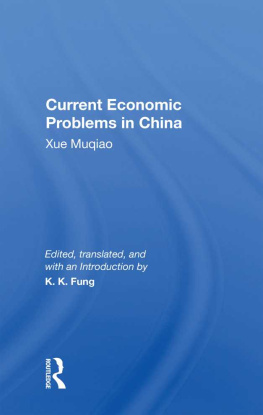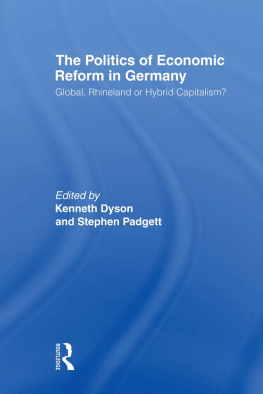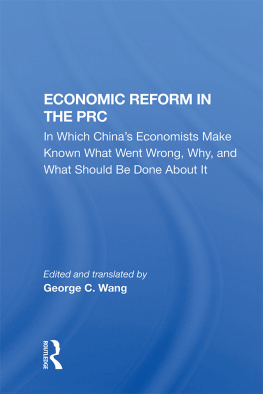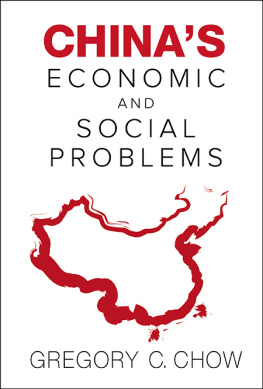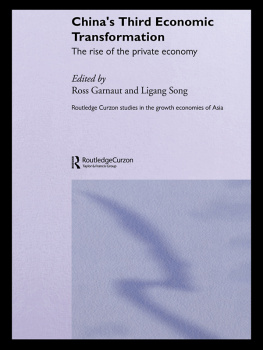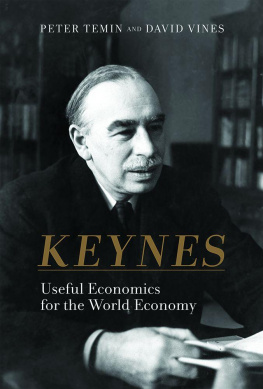Also of Interest
conomic Reform in the PRC: In Which Chinas Economists Make Known What Went Wrong, Why, and What Should De Done About it, edited by George C. Wang
he Chinese Agricultural Economy, edited by Randolph Barker and Radha P. Sinha, with Beth Rose
ood for One Billion: Chinas Agriculture Since 1949, Robert C. Hsu
China: A Political History, 1917-1980, Fully Revised and Updated Edition, Richard C. Thornton
hina Among the Nations of the Pacific, edited by Harrison Brown
hina in World Affairs: The Foreign Policy of the PRC Since 1970, Golam W. Choudhury
Technology, Politics, and Society in China, Rudi Volti
Red Guard Factionalism and the Cultural Revolution in Guangzhou (Canton), Stanley Rosen
hinas Four Modernizations: The New Technological Revolution, edited by Richard Baum
The Peoples Republic of China: A Handbook, edited by Harold C. Hinton
Urban Development in Modern China, edited by Laurence J. C. Ma and Edward W. Hanten
The Chinese Ministry of Foreign Affairs, 1968-1980: Revolutionary Politics Versus Continuity, Daniel Tretiak
China Geographer: No. 11: Agriculture, edited by Clifton W. Pannell and Christopher Salter
vailable in hardcover and paperback.
Westview Special Studies on China and East Asia
Current Economic Problems in China Xue Muqiao edited, translated, and with an Introduction by K. K. Fung
An analysis of the PRC's current economic problems and a critical evaluation of the nation's efforts to solve them, this book brings together papers and speeches by Xue Muqiao, one of China's most prominent economists and one of its key spokesmen for liberal economic reform. Xue addresses such issues as commune and brigade enterprises; employment and wages; price adjustments; proportional imbalances among industries, within industries, and between capital accumulation and consumption; problems associated with current economic reforms; and proposals for future reforms. The introduction by K. K. Fung traces the development of Xue's views since the publication of his earlier works and evaluates the implications of China's liberal economic policies for Third World countries, which have long regarded China's pre-reform economic development as a model to be emulated.
Xue's personal involvement with the major organs of central planning in the PRC makes him uniquely qualified to write a book of this nature. He served as secretary general of the Committee for Financial and Economic Affairs of the State Council, vice-chairman of the State Planning Commission, and director of both the State Statistical Bureau and the National Price Commission. Currently, he is advisor to the State Planning Commission as well as director of the Institute of Economics under the Commission.
Dr. K. K. Fung, translator and editor of the collection, is associate professor of economics at Memphis State University. He has had extensive experience in translating Chinese economic literature into English; among his translations are Chinese Economic Planning (1978) and Fundamentals of Political Economy (1977).
To My Mother, with love and gratitude -K.K.F.
First published 1982 by Westview Press, Inc.
Published 2018 by Routledge
52 Vanderbilt Avenue, New York, NY 10017
2 Park Square, Milton Park, Abingdon, Oxon OX14 4RN
Routledge is an imprint of the Taylor & Francis Group, an informa business
Copyright 1982 Taylor & Francis
All rights reserved. No part of this book may be reprinted or reproduced or utilised in any form or by any electronic, mechanical, or other means, now known or hereafter invented, including photocopying and recording, or in any information storage or retrieval system, without permission in writing from the publishers.
Notice:
Product or corporate names may be trademarks or registered trademarks, and are used only for identification and explanation without intent to infringe.
Library of Congress Catalog Card Number: 82-050237
ISBN 13: 978-0-367-01935-8 (hbk)
A refreshingly open analysis of Chinas current economic problems and a critical evaluation of current efforts to solve them. Current Economic Problems in China was written by Xue Muqiao, director of the Institute of Economics under the State Planning Commission of the Peoples Republic of China.
Current Economic Problems was first published in China by the Peoples Publishing Company in Beijing in October 1980. The Chinese edition contained 17 papers, reports, and speeches written and delivered mostly in 1979 and 1980. As was typical of a collection of this nature, there was content duplication from one paper to another. To avoid excessive duplication, only 11 papers were selected for this English edition. And in some papers, only parts were translated.
Current Economic Problems deals with: (1) proportional imbalances among industries, within industries, and between capital accumulation and consumption, (2) commune and brigade enterprises, (3) labor employment and wages, (4) price reform, (5) problems encountered in current economic reforms, and (6) proposals for future reforms.
Xue is one of the most, if not the most, read economists in China and overseas today. His earlier book, China's Socialist Economy (1979), went to a third printing as of March 1981, with a total print size of over 2 million copies. China's Socialist Economy has been translated by the Foreign Languages Press in Beijing into English, Japanese, and French. It is also being translated into German in West Germany. His much earlier work, the Socialist Transformation of the National Economy in China , enjoyed similar international exposure with its official English, Japanese, French, German, and Spanish editions.
Since major state publishing companies in China are presumably under the strict control of the Chinese Communist Party, Xues successful publishing records would not have been possible without at least tacit official blessings. However, the course of Xues career was not always this smooth. When his views ran counter to the official positions in the Cultural Revolution, he was branded as a counter-revolutionary revisionist and purged.
According to Xue, the current economic problems in China resulted from an uncritical imitation of the overly centralized and excessively rigid economic management system as practiced in the Soviet Union in the 1950s. This system was characterized by excessive command planning and overemphasis on capital formation.
To facilitate command planning in China, three strategies were adopted: (1) the economy was simplified to reduce the number of economic linkages that need to be considered, (2) power was centralized to ensure that economic policies were implemented without deviation, and (3) feedbacks were suppressed by dissociating rewards and punishments from performance to reduce the number of adjustments that need to be made in the state plans.
To simplify the economy, the following measures were adopted: First, ownership relations were advanced beyond the development of productive forces. Many economic activities were either eliminated because they could not be easily collectivized or prematurely collectivized. Those that were collectivized were prematurely forced into bigger collective ownership or whole people ownership.
Next page
